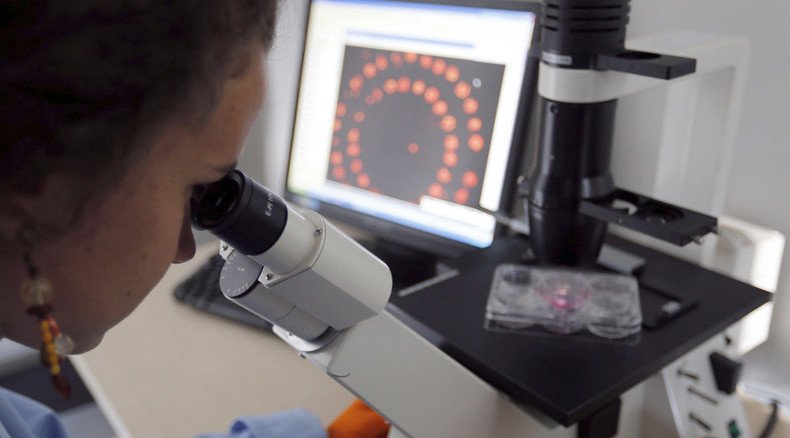Research on GM embryos should be allowed – experts

Scientists should be allowed to research genetically modified embryos, experts argue. They claim such research is integral for the progression of scientific knowledge, but do not condone the birth of GM babies.
The Hinxton Group, a collective of stem cell researchers, policy experts and bioethicists, released a statement Wednesday following a meeting last week.
“We acknowledge that when all safety, efficacy and governance needs are met, there may be morally acceptable uses of this technology in human reproduction, though further substantial discussion and debate will be required,” it read.
The experts said the science of gene-editing would “continue to progress rapidly.”
“There is and will be pressure to make decisions scientifically and for funding, publishing and governance purposes.”
The National Institutes of Health (NIH), which funds medial research, currently refuses to provide money for work on genetically modified embryos.
“The concept of altering the human germline in embryos for clinical purposes has been debated over many years from many different perspectives, and has been viewed almost universally as a line that should not be crossed,” NIH director Dr Francis Collins said earlier this year.
We need to talk about designer babies & consequences for humanity, scientists sound the alarm http://t.co/FZn5kx70D1pic.twitter.com/JeBhrMLJY3
— RT UK (@RTUKnews) September 2, 2015But Debra Mathews, Hinxton Group member and researcher at the Johns Hopkins Berman Institute of Bioethics in Maryland, said: “What is needed is not to stop all discussion, debate and research” to address the skepticism and controversy.
She also called for more exploration into the potential benefits and harms of using genome editing research on human health.
Robin Lovell-Badge, another Hinxton Group member and head of the Laboratory of Stem Cell Biology and Development Genetics at the Francis Crick Institute, said discoveries could lead to improvements in IVF treatment: “Genome-editing techniques could be used to ask how cell types are specified in the early embryo and the nature and importance of the genes involved.”
He added: “Understanding gained could lead to improvements in IVF [in vitro fertilization] and reduced implantation failure, using treatments that do not involve genome editing.”












